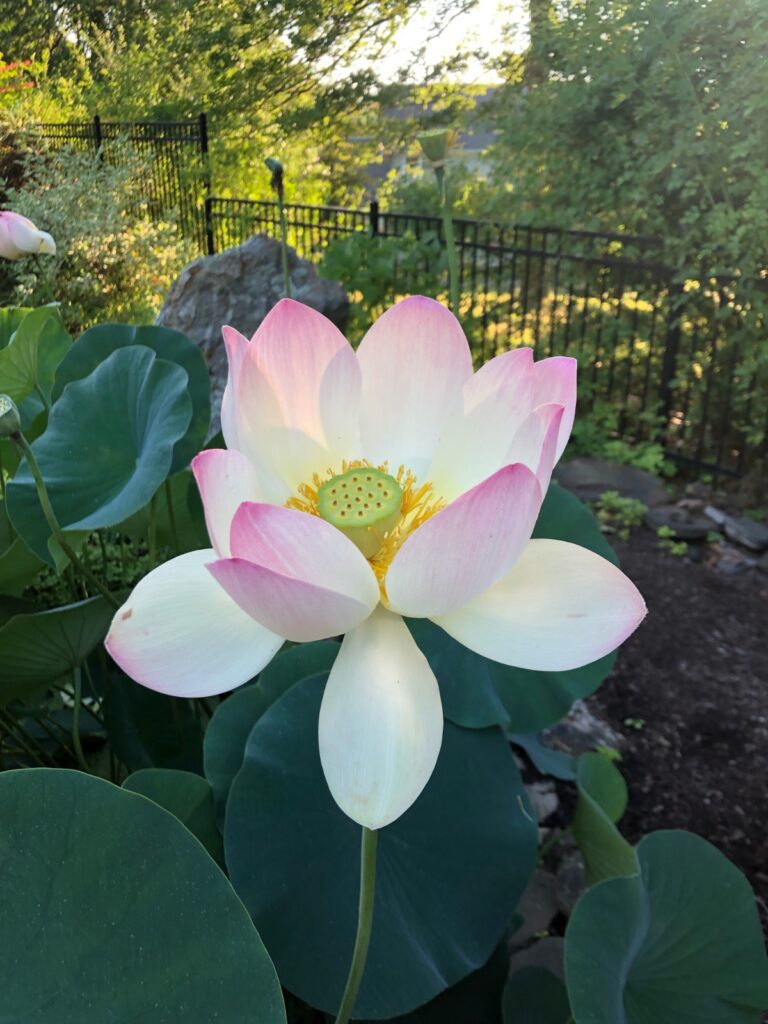
Similar Posts

811th Week: Tracking Frequencies, Avoiding “Adding Logs to the Fire”
I had a conversation recently with a friend who was agitated and highly distressed about the current political situation in the U.S. As I listened to them, I found myself wondering if they were aware of the qualities they were radiating into themselves and into the environment around them because of the intensity of their agitation. This got me to thinking about the power and importance of cultivating an awareness of the frequencies with which we resonate from moment to moment.
One of the practices I follow as best I can is to notice the tone and quality of my internal state and how that translates into what energy and qualities I radiate into myself and my environment. This doesn’t mean ignoring distress. If I feel grief and need to actively allow it to process and move through me, or if I feel outrage and need to act on behalf of what I want to support, that’s important too and can happen without generating additional activation.
Read More “811th Week: Tracking Frequencies, Avoiding “Adding Logs to the Fire””
882nd Week: Resonating with Gratitude – A Practice in Frequencies
Whenever I have to go to a doctor or any other kind of practitioner, I spend time resonating with gratitude around the fact that they can do something for me that I can’t do for myself. I started this practice many years ago and find that it makes even challenging medical and dental visits easier to move through.
When I think of resonating with a specific frequency, it reminds me of putting on particular clothing appropriate to what I’ll be doing. For me, frequencies are “energy garments” which we take on and these energies affect both our own perceptions and responses as well as the environments we enter. They “set a tone” that then supports a particular quality of experience.
This has gotten me to thinking about the effects of resonating with the frequency of gratitude. With my background in working with trauma resolution and my understanding of somatic aspects of healing, I find myself wondering if the frequency of gratitude generates a quality that conveys to the body that there’s no threat, that all is well, that there’s nothing to struggle against.
What I want to offer in this practice is an opportunity for you to experiment with the effects of resonating with gratitude in a variety of situations, especially in those where you are dependent on some kind of practitioner to offer healing opportunities that you can’t offer to yourself. You can also explore your experience when you attune to gratitude before entering a store, a business, an educational setting—anyplace. I often attune to gratitude when I come into Central Park, where I am now as I write this practice. I am deeply grateful to the Spirit of Central Park for all that it offers to so many of us in this crowded urban setting.
Read More “882nd Week: Resonating with Gratitude – A Practice in Frequencies”
851st Week: Sharing Smiles, Offering Appreciation
Sitting in Central Park on a Saturday morning, a couple walked by with two adorable small dogs. One was on a leash and the other ran free. One member of the couple needed to walk back to see if she had dropped something and, as she returned, the dog on the leash saw her and began to excitedly wiggle and run toward her. What I noticed were her smile and delight in greeting the dog and it reminded me of the power of appreciation shared with a smile.
There’s a concept called “heightening”, offered by David Spangler, a spiritual teacher and guide. What the word addresses is the natural response of “coming to life” and becoming more energized when we feel seen, acknowledged, appreciated, and celebrated. Watching the dog brought to mind the inflow of life energy that is naturally experienced when we offer and are offered delight in someone or something else.
This brings to mind a practice I’d like to invite you to play with this week. As you move through your regular daily routines, take a moment when appropriate to offer appreciation and a smile to the people you encounter, as well as to the other-than-human lifeforms you engage along the way. Remember to include as much of the world around you as you can and then notice the quality and tone of your inner experience as you do. Not only will you be “heightening” the enlivened experience of everything around you, but expressing appreciation will tend to heighten the enlivened experience within you, as well.
Read More “851st Week: Sharing Smiles, Offering Appreciation”
February 2020 Audio Meditation
For those who would like to have images with your meditation, here’s our link to YouTube for an audio meditation with images…